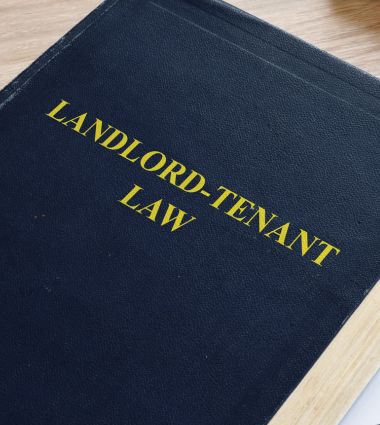What Does a Real Estate Lawyer Do?
Real estate transactions often appear straightforward on the surface, but they involve complex legal, financial, and regulatory considerations. Whether you are buying your first home, selling an investment property, leasing commercial space, or resolving a property dispute, a real estate lawyer plays a critical role in protecting your interests and ensuring the transaction is legally sound.
In Ontario, real estate lawyers are essential to navigating property laws, contracts, and registration requirements. Understanding what a real estate lawyer does and why their involvement matters can help you avoid costly mistakes and legal complications.
Who Is a Real Estate Lawyer?
A real estate lawyer is a legal professional who specializes in matters related to property ownership, transfer, use, and disputes. Their practice focuses on residential, commercial, and sometimes industrial real estate transactions, as well as property-related litigation.
Real estate lawyers provide legal advice, draft and review documents, conduct due diligence, and represent clients in negotiations or court proceedings when necessary. Their goal is to ensure that property transactions comply with the law while safeguarding their client’s rights and financial interests.
Education and Legal Qualifications

To become a real estate lawyer in Ontario, an individual must:
- Complete a bachelor’s degree
- Earn a Juris Doctor (JD) from an accredited law school
- Pass the Ontario bar examination
- Be licensed by the Law Society of Ontario
Many real estate lawyers further develop expertise through years of practice and continued legal education focused on property law, land registration systems, and real estate litigation.
Key Responsibilities of a Real Estate Lawyer
Real estate lawyers are involved at nearly every stage of a property transaction. Their responsibilities vary depending on the nature of the deal, but commonly include the following.
Reviewing and Drafting Real Estate Contracts
One of the most important roles of a real estate lawyer is reviewing and preparing legally binding documents. These may include:
- Agreements of purchase and sale
- Mortgage and financing documents
- Lease agreements
- Transfer and title documents
A lawyer ensures that contract terms are clear, enforceable, and fair, and that they accurately reflect the intentions of the parties involved.
Contract Negotiation
Real estate lawyers assist clients during contract negotiations to minimize risk and protect their interests. This includes identifying unfavourable clauses, negotiating amendments, and ensuring compliance with Ontario real estate laws.
Strong legal oversight during negotiation can prevent disputes that often arise from vague or poorly drafted agreements.
Conducting Title Searches and Title Examination
Before a property can be transferred, a real estate lawyer conducts a thorough title search. This process confirms legal ownership and identifies issues such as:
- Outstanding mortgages
- Liens or judgments
- Easements or rights of way
- Restrictive covenants
Identifying these issues early allows them to be resolved before closing, preventing future ownership disputes.
Managing the Closing Process

The closing stage of a real estate transaction is legally complex. Real estate lawyers coordinate and oversee:
- Final document execution
- Payment and adjustments
- Land transfer tax calculations
- Registration of title with the Ontario Land Registry
Proper handling of closing ensures that ownership is transferred legally and efficiently.
Due Diligence and Legal Investigations
Due diligence is a critical step in both residential and commercial real estate transactions. A real estate lawyer investigates potential risks that could affect the property’s value or legal use, including:
- Zoning and land-use regulations
- Outstanding work orders
- Environmental concerns
- Compliance with municipal bylaws
This protects buyers from unexpected legal or financial liabilities after purchase.
Resolving Real Estate Disputes
Property disputes can arise for many reasons, and real estate lawyers provide representation and guidance to resolve them efficiently.
Boundary Disputes
Disagreements over property lines are common. Lawyers review surveys, title records, and historical documents to help resolve boundary conflicts.
Easement and Access Issues
Disputes involving shared driveways, access routes, or utility easements require legal interpretation and negotiation to protect property rights.
Breach of Contract
If one party fails to meet contractual obligations, a real estate lawyer can pursue remedies through negotiation, mediation, or litigation.
Lease Agreements and Tenancy Matters
Real estate lawyers assist both landlords and tenants with residential and commercial leasing matters. This includes:
- Drafting lease agreements
- Reviewing tenant obligations
- Advising on termination rights
- Resolving lease disputes
Properly drafted leases help prevent misunderstandings and legal conflict.
Assistance in Foreclosure and Power of Sale
In foreclosure or power of sale proceedings, real estate lawyers represent lenders or homeowners. For homeowners, a lawyer may help explore alternatives such as:
- Loan modifications
- Repayment arrangements
- Property sales to avoid foreclosure
Legal guidance is essential to navigating these stressful and time-sensitive situations.
Tax Considerations in Real Estate Transactions
Real estate transactions often involve significant tax implications. Real estate lawyers help clients understand:
- Land transfer tax obligations
- Capital gains considerations
- Tax implications of property transfers
Early legal advice can help reduce unexpected tax exposure.
Litigation and Court Representation
When disputes escalate beyond negotiation, real estate lawyers provide litigation representation. They prepare legal arguments, represent clients in court, and work toward favourable outcomes through settlement or trial when necessary.
Why Hiring a Real Estate Lawyer Is Important
Real estate transactions involve large financial commitments and long-term consequences. Hiring a real estate lawyer helps:
- Prevent costly legal mistakes
- Reduce transaction delays
- Protect ownership rights
- Ensure compliance with Ontario law
- Provide peace of mind throughout the process
Even seemingly simple transactions can become complicated without proper legal oversight.
Qualities to Look for in a Real Estate Lawyer
When choosing a real estate lawyer, consider:
- Experience in Ontario real estate law
- Clear and responsive communication
- Attention to detail
- Strong negotiation skills
- Proven track record in similar matters
An experienced lawyer can anticipate issues before they become problems.
Cost of Hiring a Real Estate Lawyer
Legal fees vary based on:
- Transaction complexity
- Property type
- Scope of legal work
While costs may vary, legal representation is often a valuable investment compared to the financial risks of errors or disputes.
Real Estate
Family Law
Wills & Estates
Immigration
Join Our Mailing List.
Sign up with your email to receive our newsletter and stay informed about the latest legal developments and special offers.



















































































